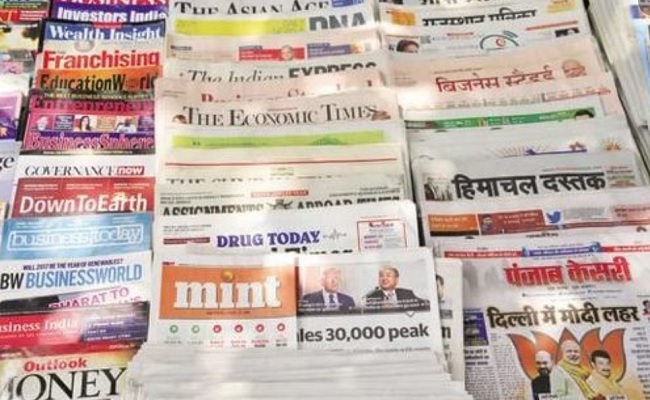As a senior media practitioner, I am deeply concerned by the unchecked corruption plaguing the print media industry in India. Despite declining readership in the digital age, print media has paradoxically become a “cash cow” for unscrupulous promoters. This is largely due to the widespread manipulation of circulation figures, unethical auditing practices, and the fraudulent sale of accreditation cards.
Accreditation cards, issued by state Information and Public Relations (I&PR) departments, are intended to support genuine journalists in their role as public watchdogs. However, the system has been grossly exploited. These cards are now often sold to undeserving individuals and media houses, undermining the credibility of journalism. Many small and medium-sized newspapers, run by businesspeople rather than journalists, thrive on these unethical practices, securing government advertisements and political patronage despite limited or non-existent readership.
Inflated circulation figures are a cornerstone of this malpractice. Established media houses print excess copies of newspapers, often sold as waste paper, to justify higher advertisement rates. Smaller publications leverage political connections to secure government ads, keeping their businesses afloat even as readership dwindles. Politicians, wary of antagonizing the media, often overlook such practices. Corrupt officials within state I&PR departments further enable these activities, accepting bribes to grant accreditations or turning a blind eye to fraud.

The consequences of these practices are far-reaching. Genuine journalists and ethical media houses struggle to compete in an environment dominated by deceit. The unchecked sale of accreditations distorts the purpose of journalism, shifting the focus from public service to profit. Meanwhile, government resources are misused, with taxpayer money funnelled into undeserving publications under the guise of advertisement payments.
Urgent reforms are essential to address this growing crisis. State governments must establish robust regulatory frameworks to ensure that only legitimate media outlets operate. Stricter criteria for issuing accreditation cards are crucial, limiting access to media houses that genuinely contribute to public discourse. Auditing agencies, which play a key role in perpetuating fraudulent circulation figures, must be held accountable through transparent oversight mechanisms.
Additionally, Labour and related departments must be empowered to monitor the operations of media houses, ensuring compliance with ethical and legal standards. Corrupt officials within I&PR departments should face strict penalties for their complicity in enabling fraudulent practices. Political patronage that shields unethical media outlets must also be dismantled, promoting accountability across the system.
The Telangana government’s formation of a new Accreditation Committee offers a glimmer of hope. If implemented effectively, this initiative could set a precedent for other states. It is an opportunity to restore integrity to a profession once held in high regard. Genuine journalists, committed to public welfare, deserve a system that supports their work rather than undermines it.
The need for transparency, accountability, and stringent oversight in the print media industry has never been greater. Without these measures, unethical practices will continue to erode public trust and tarnish the reputation of journalism in India. The time for action is now.






